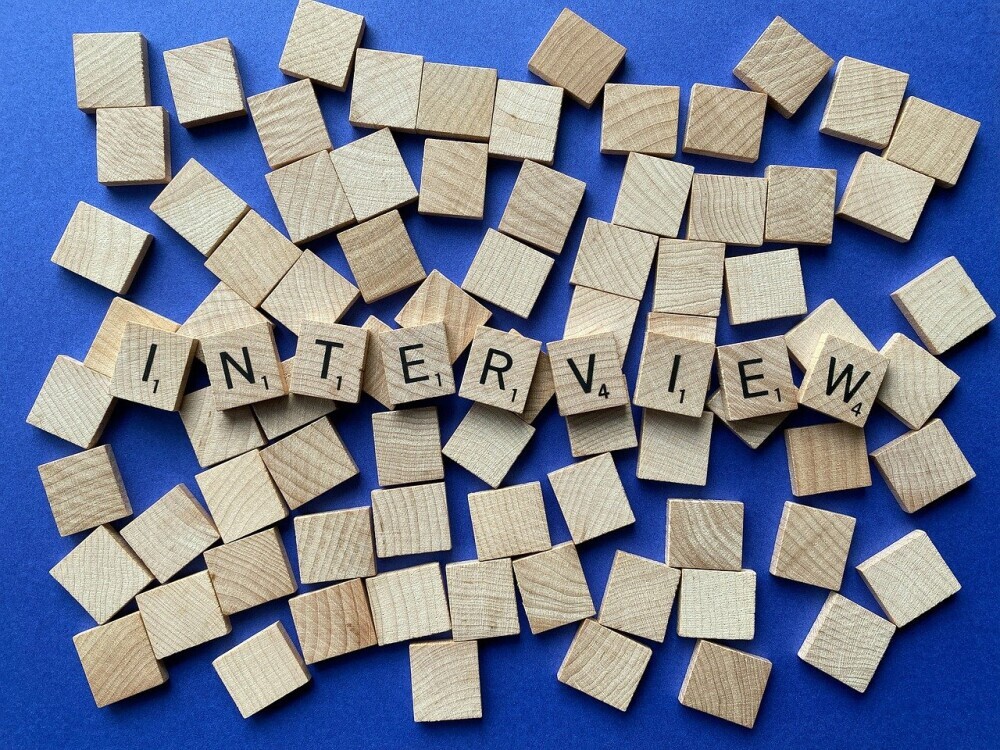Welcome to Lesson 9 of “Professional English,” where we’ll dive into essential strategies for succeeding in job interviews and advancing your career. Today’s lesson is specifically tailored for advanced English learners from Spain, focusing on practical English skills that will make a difference when you’re interviewing or discussing your career. Let’s break it down into three parts, each designed to build your confidence and vocabulary for talking about work experience, career goals, and achievements.
Lesson 9.1: Common Job Interview Questions
Goal: In this part, we’ll practice answering common interview questions while using the correct tenses to describe your work experience.
Grammar Focus: Past Simple and Present Perfect for Experience
When describing your work experience, you’ll often need to choose between the past simple and the present perfect tense. Here’s a quick guide:
Past Simple is used for actions that were completed in the past (e.g., “I worked at XYZ Company for three years”).
Present Perfect is used for actions that started in the past and may still have relevance to the present (e.g., “I have worked with many clients”). For example:
“I developed a new training program.”
“I have led multiple projects that increased efficiency.”
Vocabulary List: Job-Related Terms
Familiarize yourself with these terms to sound more natural and professional. Look at the terms, and more importantly, think about what EACH one of them means to you or relates to you:
1. Responsibilities
2. Qualifications
3. Experience
4. Skills
5. Background
6. Strengths
7. Weaknesses
8. Leadership
9. Management
10. Development
11. Project
12. Efficiency
13. Productivity
14. Communication
15. Flexibility
16. Motivation
17. Initiative
18. Collaboration
19. Improvement
20. Promotion
Practice: Role-Playing Common Job Interview Questions
Here are some typical questions you’ll face in interviews. Try role-playing with a friend or in front of a mirror to practice your responses.
1. “Tell me about yourself.” – Briefly introduce your professional background, focusing on relevant experience.
2. “Why should we hire you?” – Highlight unique skills or achievements.
3. “What are your strengths?” – Mention skills that align with the job.
4. “What are your weaknesses?” – Acknowledge an area of improvement and how you’re working on it.
5. “Describe a challenging situation at work and how you handled it.” – Use specific examples that showcase your problem-solving skills.

Lesson 9.2: Discussing Career Goals
Goal: In this section, you’ll learn to express your future career plans, using appropriate grammar to show employers your vision.
Grammar Focus: Future Simple and Future Continuous for Plans
When discussing career goals, the future simple and future continuous tenses help you articulate your ambitions:
Future Simple (will) is for definite future intentions: “I will lead the team.”
Future Continuous (will be + ing) is for ongoing actions: “I will be working on developing new strategies.” For example:
“I will be leading the department next year.”
“I plan to advance in my field and take on more responsibility.”
Vocabulary List: Career Goals and Professional Development
Knowing how to discuss your career goals in English is key to making a strong impression in interviews. Below is a list of career-focused vocabulary. Remember, think about what EACH one and what they mean or how they relate to you:
Career Goals Vocabulary:
1. Promotion
2. Advancement
3. Development
4. Leadership
5. Mentorship
6. Training
7. Achievement
8. Aspiration
9. Goal-setting
10. Vision
11. Long term
12. Initiative
13. Opportunity
14. Management
15. Expertise
16. Networking
17. Strategy
18. Innovation
19. Success
20. Collaboration
Practice: Mock Interview – Discussing Career Goals and Future Aspirations
Here are some questions to practice discussing your career goals. Try answering each one out loud:
1. “Where do you see yourself in five years?” – Talk about where you aim to be professionally.
2. “What are your career goals?” – Share your long-term vision and how it aligns with the position.
3. “How do you plan to grow within this role?” – Describe the skills you intend to develop.
4. “Do you see yourself in a leadership position?” – Explain your leadership aspirations.
5. “What steps are you taking for professional growth?” – Mention any training, mentorship, or self-development plans.
Lesson 9.3: Highlighting Skills and Experience
Goal: In the final part of this lesson, we’ll focus on structuring your answers to showcase your skills, strengths, and achievements effectively.
Grammar Focus: Present Perfect and Past Perfect for Achievements
When talking about your accomplishments, the present perfect and past perfect tenses can help you emphasize your success:
Present Perfect is for recent achievements (e.g., “I have completed several projects”).
Past Perfect shows what you had achieved before a specific moment (e.g., “I had already finished the report before the deadline”).
Examples:
“I have led a team of five on multiple successful campaigns.”
“I had managed similar projects in my previous role before joining my current company.”
Practice: Now, try answering these questions to practice highlighting your skills and achievements:
1. “What skills can you bring to this position?” – Focus on skills directly related to the job.
2. “Tell me about an achievement you’re proud of.” – Describe a specific accomplishment and its impact.
3. “How do you handle difficult tasks?” – Explain how your skills help you overcome challenges.
4. “What sets you apart from other candidates?” – Emphasize unique qualities or experiences.
5. “Give an example of a project you led successfully.” – Talk about the outcome and what you did to achieve it.

Conclusions
Job interviews are your opportunity to showcase what you bring to the table, and having the right words and grammar to express yourself will give you a powerful advantage. Remember to practice these questions out loud and refine your responses so they sound natural and confident.



I’m going to learn with this method
Glad to hear that!
taking a look at this for a second time and it made so much sense.
I hope so! Glad to hear.
Very good
Thank you!